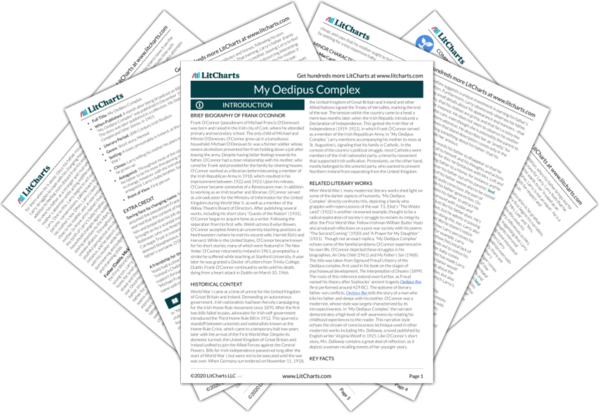Father vs. Son
At the center of “My Oedipus Complex” is the conflict between Larry and his father. O’Connor makes the importance of the father-son relationship clear in his title, which references Sigmund Freud’s idea of the Oedipus complex, a theory that proposes that boys desire their mothers and therefore view their fathers as competitors. Larry’s relationship to his father seems to mirror Freud’s theory, since Larry wants all of his beloved mother’s attention, and when…
read analysis of Father vs. SonComing of Age
In “My Oedipus Complex,” O’Connor points out what is perhaps the most painful side effect of one’s coming of age, mapping out the gradual demise of a child’s innocence and self-importance. Larry lives his first five years in a state of childhood innocence, which his father upends after returning from World War I. In order to remain the center of his mother’s universe, Larry attempts to overthrow his father by besting him in a…
read analysis of Coming of AgeChildhood and Adulthood
Since Larry is a child during the events of “My Oedipus Complex,” he naturally has a childish perspective: he can be immature, self-centered, silly, and naïve. Throughout the story, this youthful perspective puts him at odds with his adult parents, and their success at parenting Larry depends on their ability to understand him on his own terms. While Larry’s mother tries hard to understand Larry’s perspective and meet him where he is, Larry’s father seems…
read analysis of Childhood and Adulthood







